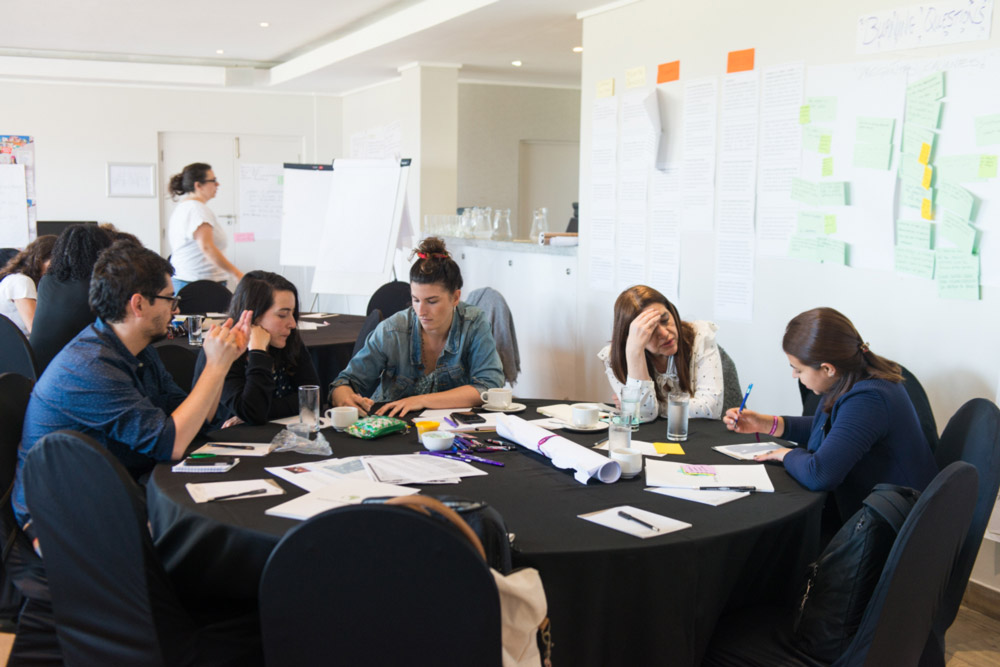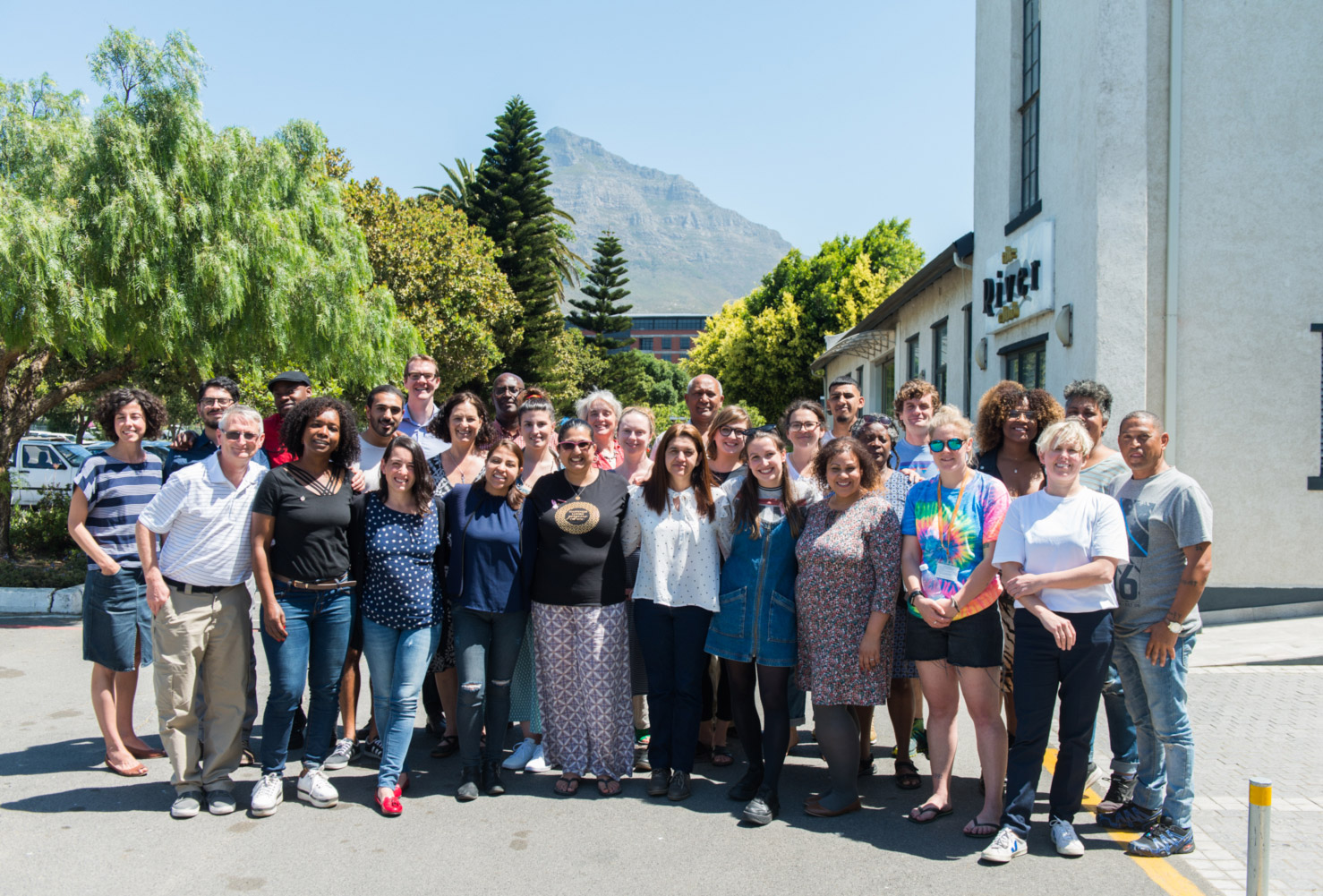Project Overview
In this featured project, we share our experience facilitating learning for a cohort of Comic Relief Grantees or learning partners between 2017 and 2020.
Comic Relief has a long record of encouraging and facilitating learning for and with those it funds. In the past, this funding has focused mainly on investing in the monitoring, evaluation, and learning (MEL) capacity and systems of individual funded partners. In 2017, Comic Relief was experimenting with different kinds of learning facilitation, and IDM was one of the focus projects for this.
The distinct lack of practice, experience and learning about how girls and young women are affected by gang-related activity, led Comic Relief to set up the I DEFINE ME! (IDM) initiative, with a learning focus. Its central aim was to enable the funded organisations to explore approaches to working with Girls and Young Women (G&YW) affected by gangs and to develop individual and collective learning about effective ways to support and empower them in different contexts.
Ultimately, the goal was to support IDM projects to navigate the complex contexts in which they worked and to continuously improve their support for Girls & Young Women
Project Statement
Comic Relief awarded three-year funding to nine multi-partner initiatives in South Africa, England, and Colombia. The funding went toward supporting G&YW living in areas with high levels of gang-related crime, organisation and exploitation.
One of the aims of the IDM initiative was to create conditions in which projects and practitioners would have the impetus and support to learn and adapt their work individually and collectively as a learning cohort of projects. Thus, learning facilitation was built into the initiative right from the start.
Comic Relief’s challenge was that despite their best efforts to encourage grantees to learn and adapt their programming, grantees tended to remain stuck in a pattern of monitoring data to prove that they were doing what they said they would do rather than using it to improve their interventions.
As a result, M&E ended up crowding out actual learning and limiting project adaptation and effectiveness. This situation led to Comic Relief actively experimenting with different models of collective learning to encourage projects to learn from their M&E data.
Southern Hemisphere and Framework were appointed as external learning facilitators to support this newer model. In other models, either Comic Relief oversaw learning facilitation, or the responsibility fell on the grantees.
Outcomes
Although the IDM initiative had learning and adaptation explicitly built into its programme design, there were inevitably challenges to overcome. Learning coordinators had to be flexible and responsive to ensure that the learning process remained vital, meaningful and supportive of the project’s needs.
Some of the main outcomes emerging from the learning journey are discussed briefly below:
Cultivation of a culture of organisational learning
Partners benefited from having valuable time for reflection through periodic learning sessions. This approach fostered meaningful reflection, ultimately establishing regular internal team reflection processes within several projects. Organisations were learning how to learn and improve their organisational learning cultures beyond the IDM project.
They were actively encouraged and given space to reflect and make changes to their activities and approaches according to their experiences

Transformation of the approach to learning
Many IDM practitioners, including Monitoring, Evaluation, and Learning (MEL) staff, shifted from accountability-focused methods to more reflective and discursive practices. The learning process emphasised facilitated discussions over rigid direction, ultimately leading to more reflective discussions at the cohort and individual project levels.
For example, some projects moved away from prioritising the large beneficiary numbers that they had promised in their proposals, to focusing on depth and transformative social change. Based on their learnings, these projects revised participant numbers downward, emphasising intensive and trauma-informed interventions.
The shift also involved:
- Learning to capture meaningful evidence of change
- Recognising the significance of small transformations
- Using insights from data to inform decision making
A shift in focus from rigid planning and performance to learning
The new learning process incentivised projects to prioritise learning over static performance measures, fostering an emergent and fluid approach embraced by both the funder and funded partners. As a result, the IDM cohort demonstrated more strategic adaptations in project design and implementation than traditional funding partnerships.
The projects embraced flexibility by allowing for dynamic adjustments to activities, outcomes, and indicators based on learning and experiences. This lead to the development of effective, G&YW-centred interventions that diverged from fixed blueprints.
Through the learning process, learning partners improved their programming, ensuring better outcomes for girls and young women. These lessons have also been shared widely to benefit others working in the field.
Girls & young women who are gange affected are empowered to define their own lives and futures
To read more about the learning process, please read the full version of the learning brief here, and the journal article published in the African Evaluation Journal.
Team members:
Southern Hemisphere: Dena Lomofsky, Elena Mancebo-Masa, Wilma Wessels, Brilliant Bhebe and Erika Coetzee.
Framework: Orla Cronin, Bill Sterland; Expert advisor: Alice Sampson


